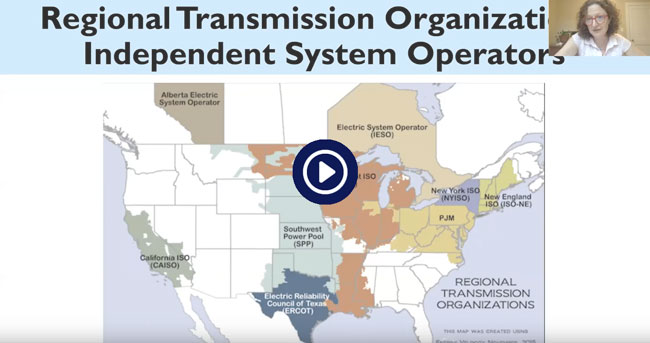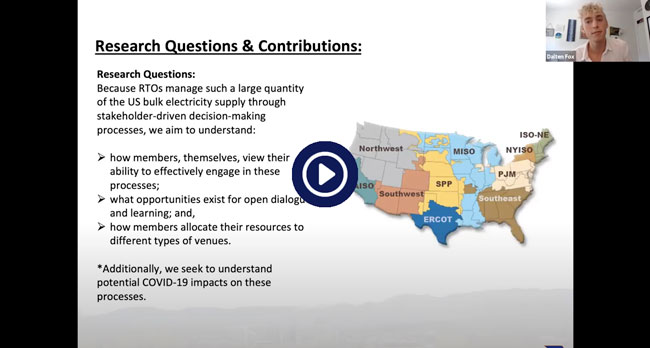Untangling the Wires in Electricity Market Planning
 In this episode of Resources Radio, host Daniel Raimi talks with Kate Konschnik, a senior lecturer at Duke University Law School who recently joined the Biden administration. Konschnik describes RTOGov, a research initiative that aims to evaluate how decisions are made in US electricity markets and the overlooked importance of regional transmission organizations (RTOs) in the electricity sector. Konschnik and Raimi discuss how different RTOs operate differently across the United States; that transparency matters in RTO governance and decisionmaking; and potential ways that RTOs can evolve to provide more reliable, affordable, and clean electricity in the years ahead.
In this episode of Resources Radio, host Daniel Raimi talks with Kate Konschnik, a senior lecturer at Duke University Law School who recently joined the Biden administration. Konschnik describes RTOGov, a research initiative that aims to evaluate how decisions are made in US electricity markets and the overlooked importance of regional transmission organizations (RTOs) in the electricity sector. Konschnik and Raimi discuss how different RTOs operate differently across the United States; that transparency matters in RTO governance and decisionmaking; and potential ways that RTOs can evolve to provide more reliable, affordable, and clean electricity in the years ahead.
A full transcript and additional information is available from the Resources Radio website. The podcast is also available on Soundcloud and other podcast platforms.
Electricity Market Outcomes and RTO Governance
On June 2, 2021, RTOGov hosted a conversation with three leading energy market scholars and a top practitioner from the clean tech industry about decisions that affect the cost and type of electricity that powers American homes and businesses.
Agenda
- Dr. Seth Blumsack, Penn State University, discussed the Political Complexity of Regional Electricity Policy Formation. Blumsack used semi-structured interviews with participants in the nation’s largest electricity market, PJM, to study perceptions of political power on the grid and tensions between market participants and other stakeholders. Then, he compared those sentiments to voting data to identify the sectors and “swing voters” who wield the most power over market rule changes.
Following, two studies explored how markets adapt to new technologies and stakeholder interests:
- Dr. Stephanie Lenhart, Boise State University, discussed Market Rules for Energy Storage and the Adaptability of RTO Governance. Lenhart and Dalten Fox studied the stakeholder and governance processes shaping market opportunities for energy storage in three markets: CAISO, SPP, and ISO-NE. The market rule changes to accommodate this new technology may, in turn, lay the groundwork for significant shifts in RTO governance.
- Mark James, Vermont Law School, presented findings on the Impact of RTO Governance Models on eNGO Participation in Stakeholder Processes. James and Kevin Jones examined how all seven RTOs have integrated environmental interests into their governance processes, and how different models of environmental interest participation impact each market’s ability to manage the transition to a low-carbon future.
Jeff Dennis, General Counsel and Managing Director for Advanced Energy Economy, provided reactions to this research from a practitioner perspective. The conversation was moderated by Kate Konschnik of Duke University.
Video
Slides
Stakeholder Participation in RTOs: Illuminating and Analyzing Member Perspectives
Presented by Dalten Fox, Energy Policy Institute, School of Public Service, Boise State University.


